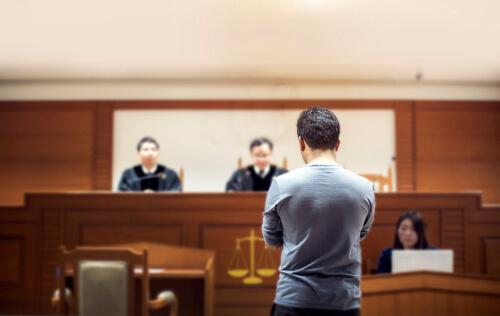The figure of the witness is a fundamental part of a trial, so the psychology of the witness is so important in this field.
What the witness transmits can support the various physical evidence presented to the judge. However, his testimony cannot be taken as dogma. Sometimes, even if you don’t want to believe it, you may not be telling the whole truth, both because you’re lying on purpose or because the memory of what’s happened has been distorted.
- The psychology of the witness tries to study.
- Understand and treat the mnemonic problems that affect an individual and that can influence the surrender of his testimony before a judge To what extent can the information he has provided be taken seriously?the witness is a human being and.
- As such.
- Countless effects can affect his memories.
We still believe that our memory is foolproof. I remember this or that like it was yesterday. Or also: it’s something I’ll never forget, how many times have we said/thought of similar phrases?Well, while we can remember facts that happened a long time ago, the images we played don’t fit as much as we think about how we live the event at the time.
They don’t even look like what we remember two days ago. Our memory is manipulated by the passage of time and the effects of misinformation. Of course, the more time passes, the more it decreases and changes the clarity of our memory.
As strange and unusual as it may seem, we can remember something, for example, that we have never lived. The witness psychology will analyze these processes to try to minimize the mistakes that can be made.
Elizabeth Loftus, along with her colleague Palmer, conducted a study to show that after witnessing an event, if they then give us additional information about what happened, we can adapt the memory without realizing this new information.
In the experiment in question, participants were asked to see an accident between two cars, then spectators were told that they had to determine the speed of the two cars.
However, the question was asked using a different verb for each group: collision, shock, impact, etc. , each of them had different connotations associated with the way we use them in our daily language, so although all study participants saw the same accident and the same speed, the truth is that when they then assessed the strength of the impact , the collision, the impact. . . most gave an answer based on the verb used in the question.
There are not only sources, but also conditions that can induce misinformation or even alter the memory of a fact. When, for example, an accident occurs, it is normal for viewers to comment on the details. Sometimes, without ill intent, one of them introduces a false element and ends up polluting the memory of others.
Therefore, one of the proposed solutions is to try to prevent potential witnesses from talking to each other. Similarly, the media often turn to people who have witnessed or heard something, thus reporting in an unclear or sesache manner.
On the other hand, the time that has elapsed from the moment we observe the fact until we report what happened will be decisive, the more time passes, the easier it will be for us to accept as true false data. For what? The information is less recent. For this reason, we are less likely to notice discrepancies in our memory and new information as we move away from the date of the incident.
One of the ways to try to obtain the most quality information is cognitive maintenance, developed in 1984 by Fisher and Geiselman when they observed that police had lost much of the information during their interrogations for lack of competition. In addition, for the same reason, they have spent resources tracking false clues.
Witness psychology influenced the development and improvement of cognitive maintenance, a model developed to improve the relationship between the interviewee and the interviewer. Cognitive maintenance is based on relationship building, a close and essential relationship to create an environment of trust and comfort. As he is not intimidated, the interviewee will tend to provide much more information.
The cognitive interview uses open questions as a means of obtaining testimonies, in this way a question arises that allows the witness to expand, develop everything that happened, the advantage of this closed question is clear.
The open question allows the person to tell the facts as if they were telling a story, while a closed question limits the answer to a very specific event, increasing the likelihood that the mistakes made will be greater, as well as the likelihood that the Problem will be widened.
This model uses four techniques
Results from various studies with cognitive maintenance have shown that this technique increases the right amount of detail without increasing the proportion of errors, thanks to the way the facts are counted and the empathy and confidence generated between the two parties.
Consider that a witness is subject to various factors, personal or environmental circumstances that influence the memory of a fact, often a mistake in their stories does not mean that he is lying, at least not always, he has simply unconsciously changed his memories, but if they are sure that something happened that way, it does not mean that it is.
Witness psychology helps to find new tools or improve existing ones to optimize the information we can get about an event. Can we always trust what witnesses remember?As we have seen, this is the main area of application and research of the psychology of witnesses.

